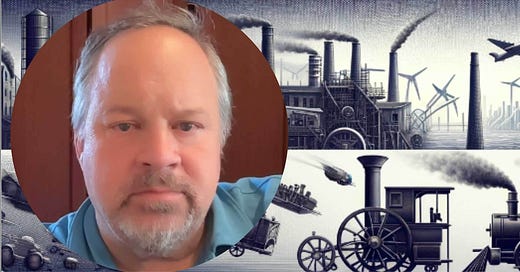An Appreciation of: Ernst Gellner: "Plough, Sword, & Book: The Structure of Human History"
Not modes of production alone, but modes of cognition and coërcion as well in the context of a stage theory of human historical development...
Not modes of production alone, but modes of cognition and coërcion as well in the context of a stage theory of human historical development...
Gellner, Ernest: 1988. Plough, Sword, & Book: The Structure of Human History. Chicago: University of Chicago Press. <https://archive.org/details/ploughswordbooks0000gell>
This, in its interpretation of human history, is perhaps the ultimate Scottish Enlightenment-Era stage-theory book. Only–instead of hunting, herding, agrarian, and commercial society, Gellner has a trinity: hunting and gathering, agrarian society, and industrial society, each marked by distinct economic, power, and cognitive structures. He argues against viewing these transitions as inevitable or predetermined, highlighting their complexity and diversity. The book delves into the interplay of production, coercion, and cognition across these societal stages, stressing the non-linear and multifaceted nature of historical progress. Gellner’s work invites a reevaluation of the simplistic categorizations of human societies and their developmental trajectories. Above all else, Gellner stresses the significance of cognitive aspects in these transitions, focusing on how changes in knowledge and belief systems interact with economic and political structures.
The three big ideas one should take away from Gellner with respect to the large-scale structure of human history are:
The Interplay of Production, Coërcion, & Cognition: None of these is prior to the other—although all are profoundly shaped by technology. These three elements interact in shaping human societies as equals, and not simply, because they are interconnected in complex ways.
Non-Linear Progression of Societies: Societal development is diverse and multifaceted, shaped by various cultural and environmental factors. There is very little that is linear, or predetermined.
Cognitive Aspects of Societal Change: Changes in belief systems and knowledge are crucial in understanding societal transformations—and the modes of cognition are not traceable back to modes of production and modes of domination. All you can say is that the mode of cognition needs to make sense of the mode of production and the mode of domination, for if it does not make sense you have a society-shaking revolutionary situation.
The three big ideas one should take away from Gellner with respect to “modern” societies are:
Keep reading with a 7-day free trial
Subscribe to Brad DeLong's Grasping Reality to keep reading this post and get 7 days of free access to the full post archives.





